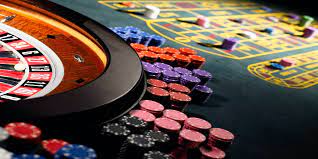Casinos have long been synonymous with glamour, excitement, and the thrill of the unknown. From the iconic neon lights of the Las Vegas Strip to the opulent koplo77 nestled in Monte Carlo, these establishments have captured the imagination of people around the world. Beyond the glittering lights and ringing slot machines, casinos have a rich history and cultural significance that extends far beyond mere entertainment.
The Origins:
The word “casino” itself has Italian origins, derived from the term “casa,” meaning house. The first recognized casino, the Ridotto, opened its doors in Venice, Italy, in 1638. Over the centuries, the concept of a casino evolved, eventually spreading to other parts of Europe and the rest of the world.
Entertainment and Gambling:
Casinos are multifaceted establishments that offer a variety of entertainment beyond the gaming tables. While the primary draw may be the chance to win big at the roulette wheel or poker table, casinos often feature world-class entertainment, luxurious accommodations, gourmet dining, and more. The integration of these amenities creates an immersive experience, turning a night at the casino into a complete entertainment package.
The Psychology of Gambling:
The allure of casinos isn’t just about the potential for financial gain; it’s also deeply rooted in the psychology of gambling. The anticipation, risk, and reward associated with games of chance create a unique and exhilarating experience. The sound of slot machines, the roll of dice, and the shuffle of cards all contribute to the sensory appeal that keeps visitors coming back for more.


